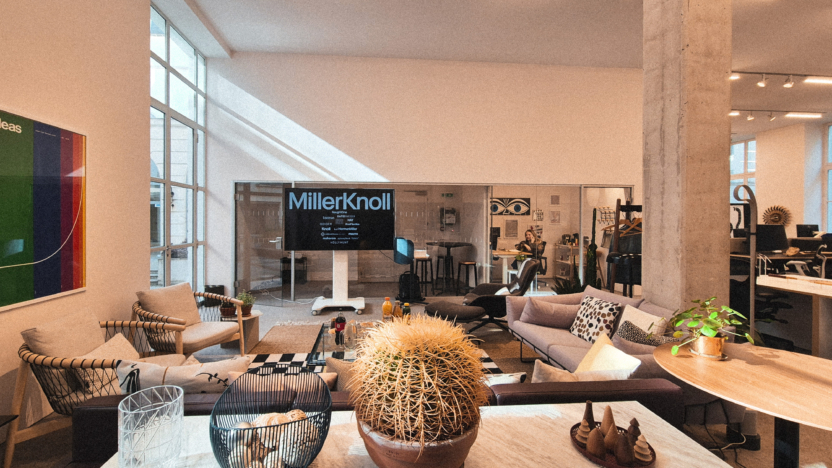What about hybrid working in France?
23 March 2022 – 6 minutes to read
Some progress but still a long way to go.

Here in France, as a result of the Covid crisis and its impact on new ways of working, we have been observing three main different positions from French organizations:
For a few months now, the most common one has been a strong willingness from many organizations to get their people back to the office as much as possible and to get everybody back to the old ways of working. Nevertheless, these organizations are aware that not everybody is eager to drop working from home – the exceptions being managers, millennials and, surprisingly, women, who are all eager to return to the office.
Other organizations are ready to make changes and have been thinking about deploying hybrid working models, starting with working from home (WFH) agreements, which are still to be formalized. Many of these agreements were expected to be finalized by the end of 2021, but for other organizations, there is still a long way to go. Needless to say, organizations are also aware that these new working policies will then need to be translated into workplace transformation strategies.
Finally, a large number of organizations are still waiting to see what will happen next and what other companies are going to do as far as new ways of working are concerned. These organizations are now aware that whatever happens, they will have to take into consideration employees’ needs and expectations.
According to a survey issued by a professional body before summer 2021, 74% of French employees want to keep on working from home at least two days a week. [1] This is still true today, marking a major change considering that before the covid crisis WFH was not part of the French mindset.
Prior to the pandemic, most leaders and managers believed that remote working would have a negative impact on productivity and performance, but after a 2-year experience of working from home, they now agree that it has globally been quite successful. From an employee perspective, a difference can be truly seen between working life pre- and post-covid, such as the positive effect on their quality of life.
Of course, large French organizations are not necessarily dealing with hybrid working the same way smaller ones operating mainly in France are. For instance, in the pharmaceuticals and insurance sectors, some big organizations that were already working from home up to two days a week before the crisis are now willing to extend this to three days a week going forward. Obviously, there’s a strong willingness from these large organizations to keep on with this trend and to even go beyond for some of them.
On the other hand, smaller, more typical French organizations operating at the national level are more suspicious about hybrid working, but again, this can vary a lot of course from one company to another.
Generally speaking, this is still quite different compared to what has been observed abroad, mainly in the UK, in the States but also in some other English speaking countries, where organizations were convinced right from the beginning of the pandemic that things would never be the same again and so started to think about deploying hybrid working models.
While in France they only started to think about hybrid working from September 2020 and then in September they agreed that they required more time to reconsider their workplace strategy, waiting for the end of 2020. And, as a matter of fact, things have not changed that much since then, and many organizations kept on just thinking about it in 2021…
But again, according to the French National Association of HR directors, there is a strong willingness now to move on since last September and get the appropriate policies agreed between companies, employees and unions in order to make things clear in everybody’s mind. Today, there is much more optimism bearing in mind that leadership is now aware it is necessary to formalize the New Deal.
It is all the truer that some employees are willing to keep on working from home, while others are eager to go back to the office. So where is the limit in between? What should employees do? What are they allowed to? And what should managers do when they are asked by their teams to keep on working from home a few days a week? Formalizing working from home with a specific policy and specific guidelines is necessary and will help everybody understand what to do next. And, in that way, the 74% of people wanting to spend two days or more working remotely is a big driver. Another figure to keep in mind is that one employee in three is ready to quit their job if returning to the office is made compulsory [i]. People feel empowered and they know that their employers know it.
Things are changing, for sure. Evidence-based management has not been incorporated much in leadership practices here in France, but since the beginning of the COVID crisis, many organizations have been running surveys on a regular basis to get a better understanding of what has been going on with their employees, how their employees have been feeling about working from home, and how things have generally been for their employees during these 2 years.
These surveys are now considered a good source of evidence, and this is the type of data French organizations are expected to focus on when they are making their decisions about hybrid working.
As a conclusion, larger and smaller French companies are at last starting to understand that switching to a hybrid working model is a must and, hopefully, that one size does not fit all. Many are also beginning to recognise that in order to make hybrid working work, they need to get a deep understanding of who their employees are and what their employees expect and need.
- 1 employee out of 5 has moved to a new living place, a new town outside Paris and other large cities expecting to be able to keep on WFH
- 16% of employees have resigned because they did not want to go back to old ways of working
- Over 30% of employees are looking for a new, more purposeful job
More and more French organizations are becoming aware that they will have to translate the results of these surveys into a meaningful organizational culture and a workplace strategy based on their leadership vision and business drivers. Going forward, this will help them hold onto their talent, ensure that everybody is aligned (even with distributed teams involved), and ultimately, it will mean that everybody is engaged as part of a single company where hybrid working will be the new normal. A shift in cultural mindset is already here in France!
[1] 7th Barometer Opinion Way, May 2021
[i] Survey run by Robert Half, April 2021
Book a Consultation
A question or just a thought? Do you want to reconsider your workplace strategy?
Write to us by completing the form below. We will take the time to study your request and get back to you as soon as possible!
ARCH.DESIGN
13 rue de Caumartin
75009 Paris
bonjour@arch.design
+33 1 74 92 26 00

